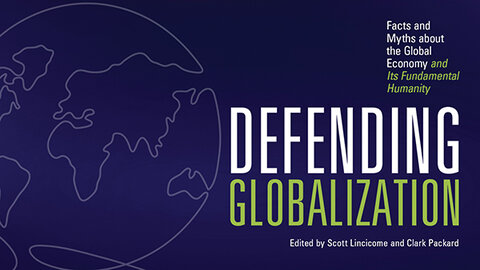
At the end of last year, tolerant, modern, liberal Denmark decided it had seen enough violence. Violence was flaring in Danish and Swedish cities, both nations were facing significant diplomatic pressure, authoritarian regimes like Iran issued threats, terrorist groups were calling for attacks, and indeed both nations found their citizens and embassies attacked around the world.
The reason for these threats? Danes had the right to non‐violently protest by burning or desecrating books that they disagreed with. Quran burnings, mostly by far‐right activists but at least some by immigrants from the Middle East, sparked widespread outrage across the Muslim world, and leaders in Scandinavia said they would look to stop such desecration of religious texts.
While Sweden has not yet capitulated on free expression, Denmark surrendered to threats of violence by terrorists and authoritarian states by implementing a sacrilege law that one would expect to find in Iran, the Spanish Inquisition, or ancient empires. Under this new law, Danes who peacefully express their disdain for religious teaching by desecrating a religious text will be sent to prison for two years for the mere crime of using their free expression in ways the government believes to be distasteful. At least a Danish prison is better than the Iranian gallows.
One has to wonder if such a dramatic change will be truly popular in what has traditionally been held up as a model of a tolerant and liberal society. After all, no lawmaker from the governing coalition rose to defend the bill during its final debate and vote in Parliament.
Now many may recoil at the sight of crude book burnings, seeing shadows of the Nazi’s mass burning of books in their consolidation of power and purging of “un‐German” ideas. Others may worry about the impact of anti‐Islamic or antisemitic behavior on traditionally marginalized groups.
But burning documents has also been a powerful and evocative form of expression across history. Danish free‐speech expert Jacob Mchangama points out numerous examples:
Martin Luther burned the Papal bull that labeled him a heretic and called for the destruction of his writings.
Abolitionist William Lloyd Garrison burned a copy of the US Constitution for its acceptance of slavery as “a covenant with death,” and “an agreement with Hell.”
Anti‐Vietnam War activists and pacifists burned their draft cards.
The US Supreme Court has upheld the right of Americans to burn the American flag, overturning a Texas law forbidding the “desecration of a venerated object.”
By outlawing such sacrilegious speech, Denmark empowers the violent, showing that even the most liberal and secular democracies will fold when faced with religious fury. Artists and former Muslims that want to criticize Islam, or its interpretation by totalitarians and terrorists, will go to jail while those threatening violence are accommodated.
As my fellow Cato colleague, Mustafa Akyol, has pointed out, this law also does not help Muslims at all. Forcing “respect” through threats of violence or legal censorship will likely only exacerbate conflict. In the midst of the Quran burnings, an Iranian burned copies of the Bible, Torah, and the Swedish and Danish flags in Copenhagen, and it barely even registered in the news. While Danes, Swedes, and other major religions tolerated such acts of expression, even the most liberal of Danes likely feels that Islam is too thin‐skinned—hardly a way to promote social harmony and respect.
But as if it weren’t enough to see Denmark backslide into blasphemy and sacrilege laws, Meta’s Oversight Board, an organization that has been referred to as a Supreme Court for Facebook with a stated goal of “ensuring respect for free expression,” has recently embraced similar policies online.
Reaching this conclusion is not as obvious as Denmark’s clear retreat from free expression. Let’s first establish a few content moderation basics. The Oversight Board was empowered by Meta to make binding decisions on pieces of content and recommend how Meta’s policies should change. Under Meta’s hate speech policies, users can generally attack concepts and institutions but not people.
So, for example, one can call the Catholic Church “evil” or “scum” but not Catholics. The same applies to Germany vs. Germans, LGBTQ flags or lifestyles vs. LGBTQ people, whiteness vs. white people, etc. Now, often users post content that includes imagery or thumbnails of linked articles rather than just text. For determining when content with visual elements is attacking people rather than the concept or the idea, the policy takes “visual elements in the content into consideration.” (A lot more could be said here but Meta did not allow the Oversight Board to publish more specifics than this).
In practice, it’s this standard that allows users to criticize a religion through art or with pictures without Meta assuming such critiques are an attack on all followers of that religion. It’s an imperfect standard but one that at least tries to protect speech that targets concepts and institutions while being enforceable on millions of pieces of content posted every day.
Enter the recent Oversight Board decision. Concerned by a piece of content that praised transgender self‐harm but only showed a shower curtain with the appearance of the transgender flag, the Board recommended that Meta no longer require that a person be targeted. Instead, attacks on flags related to gender identity will be considered the same as attacks on people.
Should Meta decide to implement this decision, attacks that demean or criticize concepts or ideas of gender identity through flags and imagery will be considered hate speech. Yes, more hateful content like the awful content in this case will be removed, but so too will significant political and social commentary.
For example, sharing an article that argues that the belief in more than two genders is misguided or immoral and includes a picture of a trans flag could get one labeled as a spreader of hate speech. Burning, desecrating, or otherwise demeaning an object carrying the trans flag colors would likely violate the rule. Critically commenting about a news story on government transgender policies with a pride flag in the thumbnail could land you in Facebook jail (still far better than ending up in a Danish prison or on an Iranian execution list). Thankfully, the decision limits its recommendation to only flags related to gender identity, but the logic can be applied to any number of other symbols.
After all, why shouldn’t Meta also protect Muslims, Jews, Hindus, Israelis, Palestinians, Russians, Ukrainians, other LGBTQ groups, or any group of people when their flags, symbols, or institutions are criticized and attacked?
For a body that is supposed to be dedicated to free expression based on international human rights standards, its effective embrace of the logic of sacrilege and blasphemy laws is troubling. While the decision states “it does not seek to diminish Meta’s protection of challenges to concepts, institutions, ideas, practices, or belief,” this is exactly the effect this recommendation will have.
And it speaks to Nadine Strossen’s warning that hate speech codes, no matter how deliberate and carefully crafted, are inherently vague and overbroad, inevitably harming expression and equality.
As a private organization set up by a private company to help answer difficult content moderation questions, the Oversight Board can recommend whatever it wants. Likewise, Meta can adopt whatever standards it wants, and users are free to respond as they wish. But if it wants to “ensure respect for free expression” in the 21st century, blasphemy and sacrilege laws are about the last “solution” the Board should have reached for.
At least users can respond to the inconvenience caused by increasing limitations on speech by social media platforms by switching to alternative platforms that better suit their needs. It is far more difficult and disruptive for citizens of Denmark to avoid being jailed for their speech as they will need to find a new nation to call home.
And so as nations around the world, including liberal democracies like Denmark, increasingly limit free expression, the world is facing a worsening free speech recession. Those who care about liberty can no longer take free expression for granted but must remind the world that free expression is not the problem but rather the answer to today’s challenges.




















